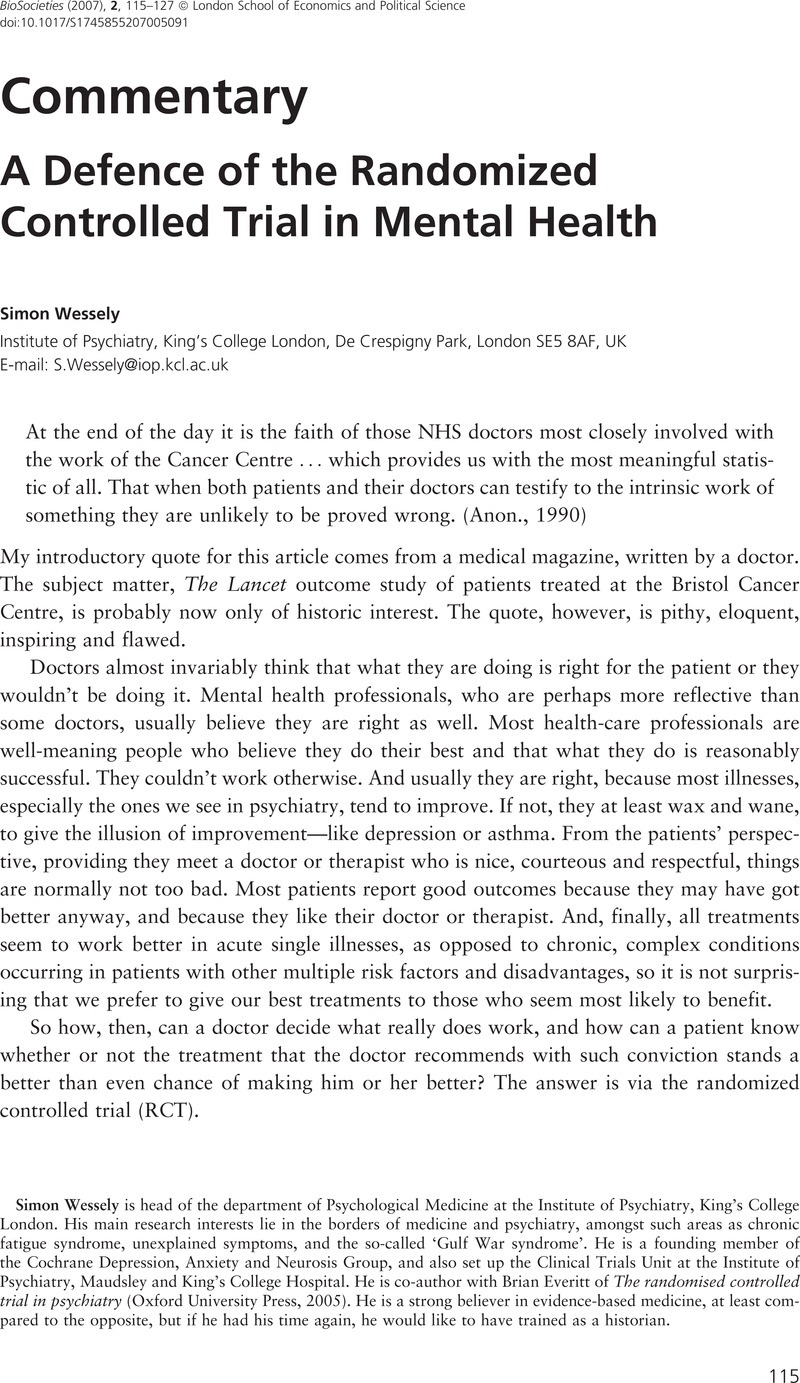Crossref Citations
This article has been cited by the following publications. This list is generated based on data provided by Crossref.
Clark, D. M.
Fairburn, C. G.
and
Wessely, S.
2008.
Psychological treatment outcomes in routine NHS services: a commentary on Stiles et al. ().
Psychological Medicine,
Vol. 38,
Issue. 5,
p.
629.
STILES, W. B.
BARKHAM, M.
MELLOR-CLARK, J.
and
CONNELL, J.
2008.
Correspondence.
Psychological Medicine,
Vol. 38,
Issue. 6,
p.
905.
Rapport, Frances L.
Jerzembek, Gabi S.
Doel, Marcus A.
Jones, Aled
Cella, Matteo
and
Lloyd, Keith R.
2010.
Narrating uncertainties about treatment of mental health conditions.
Social Psychiatry and Psychiatric Epidemiology,
Vol. 45,
Issue. 3,
p.
371.
Barkham, Michael
Stiles, William B.
Lambert, Michael J.
and
Mellor‐Clark, John
2010.
Developing and Delivering Practice‐Based Evidence.
p.
21.
Justman, Stewart
2015.
The Nocebo Effect.
p.
71.
Barkham, Michael
Moller, Naomi P.
and
Pybis, Joanne
2017.
How should we evaluate research on counselling and the treatment of depression? A case study on how the National Institute for Health and Care Excellence's draft 2018 guideline for depression considered what counts as best evidence.
Counselling and Psychotherapy Research,
Vol. 17,
Issue. 4,
p.
253.
Gjengedal, Ragne G.H.
Reme, Silje E.
Osnes, Kåre
Lagerfeld, Suzanne E.
Blonk, Roland W. B.
Sandin, Kenneth
Berge, Torkil
and
Hjemdal, Odin
2020.
Work-focused therapy for common mental disorders: A naturalistic study comparing an intervention group with a waitlist control group.
Work,
Vol. 66,
Issue. 3,
p.
657.
Chen, Sheng
Lee, Alina
and
Wang, Wei
2023.
A Meta-Research of Randomized Controlled Trials in the Field of Mental Health: Comparing Pharmacological to Non-Pharmacological Interventions from 1955 to 2020.
The Canadian Journal of Psychiatry,
Vol. 68,
Issue. 9,
p.
639.



